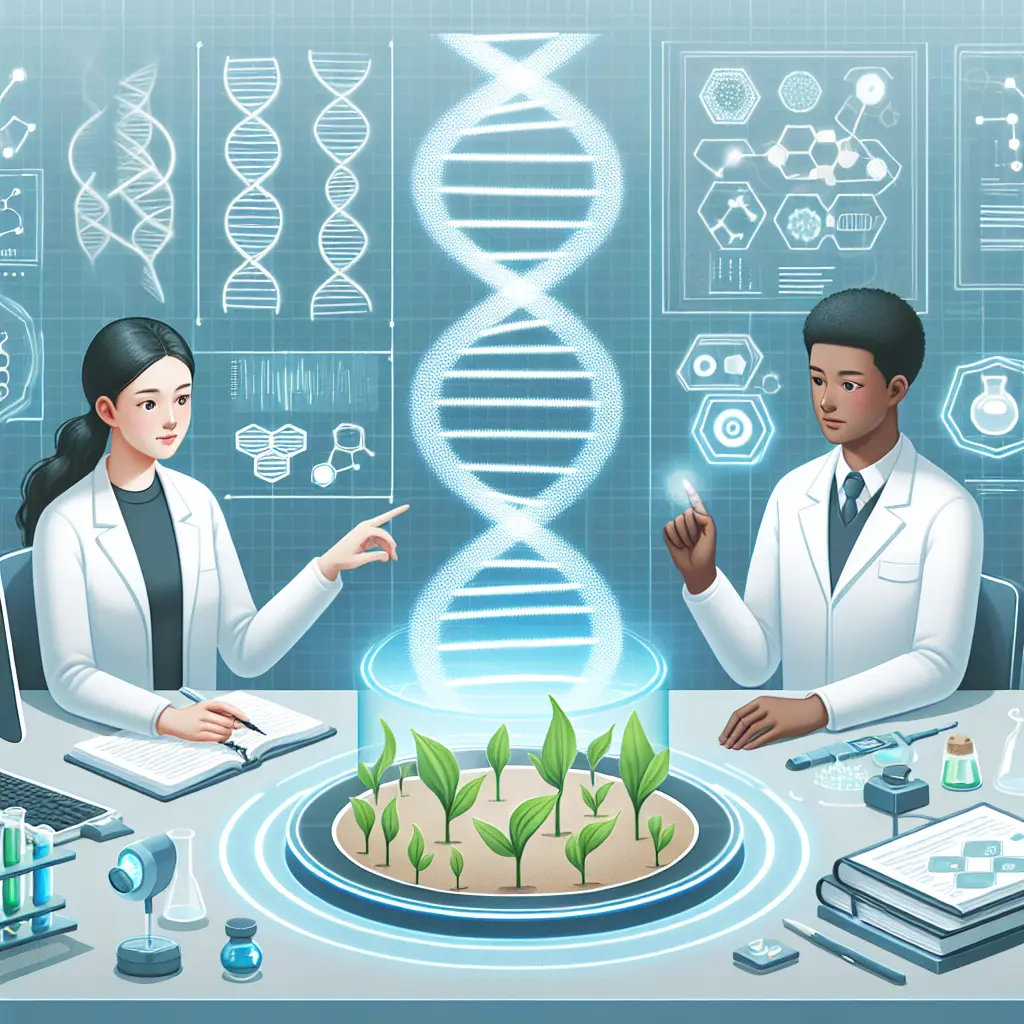
The Role of Genetics in Lab: Unveiling the Complex World of Genetic Science
In the intricate realm of scientific research, genetics in the laboratory stands as a cornerstone, profoundly influencing myriad aspects of modern science and medicine. The role of genetics spans from revolutionizing healthcare through genetic testing in labs to pushing the boundaries of what's possible through genetic engineering. As we explore this fascinating field, recent events highlight the practical implications and ethical considerations tied to genetic advancements.
Genetics in Laboratory and Genetic Research in Lab
The realm of laboratory genetics applications has expanded dramatically over recent years. Genetic research in labs is not merely confined to understanding human diseases but also encompasses a range of species, including our canine companions. This research is crucial for advancing our understanding of genetic diseases and developing new treatments.
Recent News: The Tasmanian Labradoodle Breeder Shutdown
A recent event that underscores the importance of genetics in practical scenarios is the shutdown of a Tasmanian labradoodle breeder, which led to the need for rehoming hundreds of dogs. This situation brought to light the critical role of genetic testing in labs. Prospective pet owners and breeders must understand the genetic health of their animals to prevent the perpetuation of inheritable diseases. This incident not only stresses the laboratory techniques in genetics but also highlights the ethical dimensions of genetic research and breeding practices.
For further reading on genetic health in dogs, visit Genetics Home Reference.
Genetic Testing in Labs and DNA Analysis in Laboratory
The lab-based genetic studies conducted on these labradoodles could potentially have prevented many of the heartbreaking conditions reported by new owners dealing with hefty vet bills. Genetic testing in labs plays a pivotal role in identifying carrier states for various genetic disorders, allowing breeders to make informed decisions about breeding pairs. DNA analysis in laboratory settings can offer insights into an animal's genetic makeup, providing critical data that can impact an animal's overall health and the health of its future offspring.
To learn more about DNA analysis techniques, check out Nature Reviews Genetics.
Genetic Engineering in Labs and Laboratory Techniques in Genetics
Beyond testing, genetic engineering in labs offers possibilities such as correcting genetic defects before they manifest. This aspect of laboratory genetics applications is not without controversy but holds promise for eradicating hereditary diseases. Laboratory techniques in genetics, including CRISPR and gene therapy, are refining ways to edit genomes with precision never before seen.
An insightful resource on genetic engineering can be found at Genetic Engineering and Biotechnology News.
Genetic Data Analysis
The power of genetic data analysis extends beyond individual cases; it contributes to broader research initiatives that can lead to breakthroughs in understanding complex genetic traits and diseases. Lab-based genetic studies provide a wealth of data that, when analyzed effectively, can accelerate advancements in medicine and even inform public health decisions.
For more on how genetic data is used in research, visit ScienceDirect’s genetics section.
Ethical Considerations
However, with great power comes great responsibility. The rush to adopt labradoodles post-breeder shutdown also crashed the RSPCA website, showing a high public interest in rescue operations. It raises important questions about ethical breeding practices and the responsibility breeders have to ensure healthy genetic lineages.
A detailed discussion on ethics in genetic engineering is available at The Hastings Center.
Connecting to Broader Themes: Inventors Who Regret Their Creations
Interestingly, the broader implications of genetics in society can be paralleled with stories of inventors who regret their creations. Just as these inventors reflect on the impacts of their work, geneticists and breeders must consider the long-term effects of their practices on animal welfare and genetic integrity.
Personal Story: Fostering Impact
Highlighting a positive spin on community impact, a New Mexico woman managed to foster 48 dogs in 9 months, showcasing how individuals can make a difference in the wake of challenges stemming from breeding practices. Each dog represents a life impacted by human decisions at the genetic level.
For inspiring fostering stories, visit The Animal Rescue Site.
Conclusion: The Balancing Act of Genetics in Laboratory Settings
The role of genetics in lab settings is multifaceted, blending scientific innovation with ethical challenges. From enhancing our understanding of genetic disorders through lab-based genetic studies to grappling with the consequences of genetic engineering, the field is at the forefront of much-needed debates on its future direction.
As we continue to explore these complex themes, let us remain mindful of our responsibilities — not only as scientists and breeders but also as members of a global community where each decision can ripple across lives and species.
With science at our fingertips, let's tread thoughtfully into the future.
— Sam Lockhard